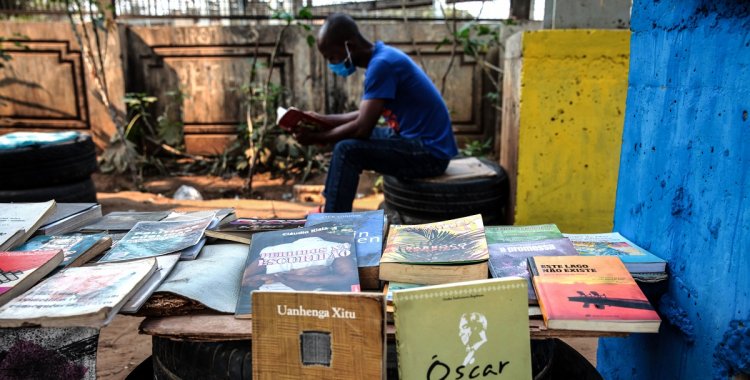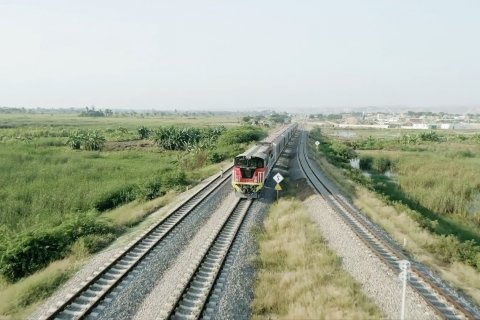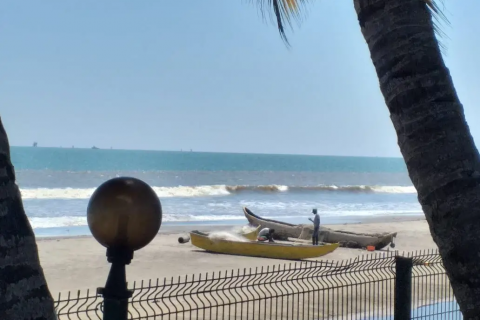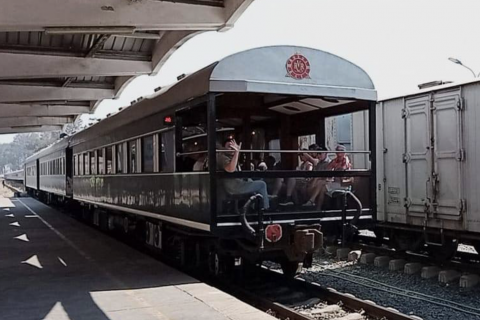The initiative, called "Free Reading", is by Arante Kivuvu and Francisco Mapanda "Dago Level", the first detained with 16 other activists for reading a book, in the well-known 15 + 2 case, and the second for considering in court that the trial was "bullshit".
Speaking to the Lusa agency, they said that the project is over a week old, and came up with the need to reinvent themselves in this phase of the new coronavirus pandemic, when they started selling cigarettes there.
"We were selling under the pedestrian, we came with our manuals, and the moment we sold, we read and had some discussions about the manual we read," said Arante Kivuvu, noting that the situation aroused other people's interest.
According to Dago Level, on the first day they took 14 books that were immediately in the hands of avid readers. For this reason, they decided to take all the works that each one had and today, with the donations they receive, they already add up to more than 400 books that are loaded daily for that space.
Arante Kivuvu guarantees that the place is very popular, receiving children, young people and adults, but does not have statistical data because the project does not follow the formalities of a real library.
"Our library is non-standard, out of the ordinary, that is, conventional libraries have a presence list, where people put the numbers, they actually have a number of bureaucracy and we get rid of it," said Dago Level.
For Dago Level, the most rewarding and comforting thing is to listen to people's comments regarding the initiative, remembering that "libraries and books are more distant from people with each passing year".
The activist talks about the relationship between pedestrian and people, stressing that the project adds more value to this, breaking taboos and undoing prejudices, among which "that Angolan young people do not like to study, to read".
"If people used to come to the bridge just to smoke a cigarette, drink whiskey or do less good things, today they come and find books as an alternative," said Dago Level, stressing that "the standardized library is proving the opposite".
Located between a road and a railway, the deafening noise of the place, emphasized Dago Level, does not hinder the concentration of readers, who before 7 am, the time when the space opens, are already profiled to read a book.
"It seems that when people pick up the book, they enter the book. As they say: whoever writes a book builds a castle and whoever reads a book lives inside it, blocking out all the noise that comes, whether from the side of the road or the line railroad, "he said.
Arante Kivuku recalls a remarkable scene: a child who declared that he had not read a book for six months, since classes were suspended due to covid-19.
"When the library opened on the same day, the boy finished reading a 30-page book and stayed to tell us what he understood in the book," said Arante Kivuvu, also reminding Dago Level that a young woman was able to read the book in 15 minutes "Granny Gangster", which she in turn recommended to her brother.
"There are people reading more than one book a day, in fact, we are discovering real book buffoons," said Dago Level, noting that he has observed that people are hungry to read books on political issues and linked to political science, but also self-help.
"It seems that there is a thirst for people to understand inside how politics works, to understand more about their rights, duties and this has been a factual finding," he said.
Without any support from the authorities, only solidarity from the people, the activists said that they had to resort to rubbish to "build" the library, turning tires into banks for readers and retrieving suitcases that now serve to store and transport books.
"Right now, we are receiving a lot of requests, as in Camama, Rangel, Sambizanga, Namibe, Huíla, there are people who are also intending to create the standardized library. Our responsibility is being increased. We do not idealize a project like such, but now there is a need for it ", stressed Arante Kivuvu.
Regarding the project's connection to the 15 + 2 process, concerning 17 Angolan activists arrested in 2015 when they were debating a book and accused of preparing a coup d'état against the MPLA government of the then president, José Eduardo dos Santos, both considered it a mere coincidence, remembering that the love for books for both is great.
At the time of the report, Ladislau Costa donated four works, in solidarity with the initiative and passion for books.
"We have a library shortage and despite the shortage, there is bureaucracy and formalism. What the young people did here, gave an opening to alleviate the suffering that many people have been experiencing with confinement and also with the difficulty of accessing a good book for reading ", he stressed.
In declarations to Lusa, readers welcomed the project, which takes time for young people and brings people together, as stated by Domingos Kanjila, 23, who has been a space visitor for three days.
"I have already read three books, it is a very good initiative, since the libraries here in the neighborhood are very far from the population, this motivates young people to have the habit of reading and allows them to acquire new knowledge", he said, adding that he has been reading mainly virtual form, since access to the physical book is rare due to high prices.







